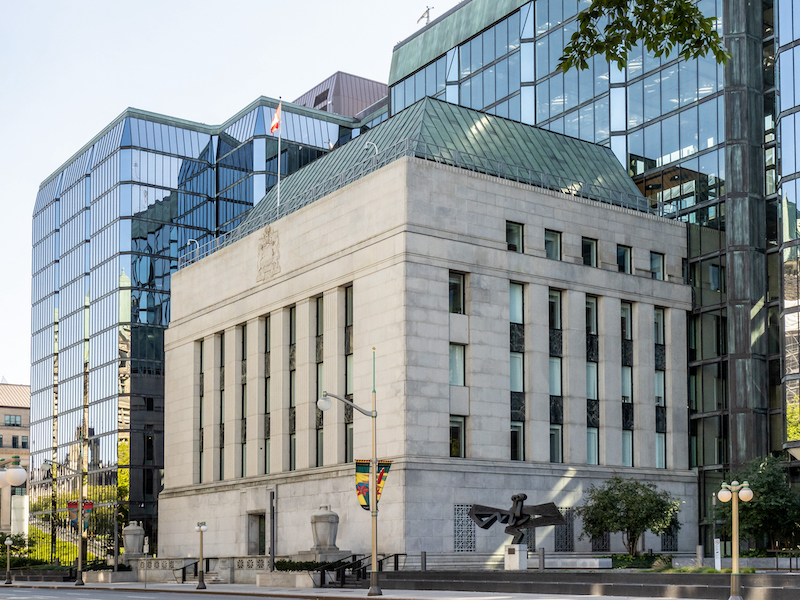
A Bank of Canada survey finds Canadians are increasingly cutting back on spending while mortgage holders remain confident they can keep up with higher payments when their loans renew.
The central bank released its fourth-quarter consumer expectations and business outlook surveys Monday, revealing how Canadians are faring amid higher borrowing costs and rising prices.
Roughly two-thirds of consumers said they were reducing spending or planning to do so because of their expectations for interest rates and inflation.
“While many Canadians are experiencing rising levels of financial stress, this stress is higher among those who typically live paycheque to paycheque,” the Bank of Canada said.
The central bank said financially vulnerable households typically hold less than two weeks worth of expenses in liquid assets, frequently run out of money before the end of the month and are not able to immediately pay for an unexpected expense of $500. The survey found one in four consumers reported having at least one of these characteristics.
Consumers expect price growth in key goods like gasoline, food and cars to slow in the next 12 months, but “persistently high expectations for services like rent may be slowing progress in returning overall inflation expectations to where they were before the Covid-19 pandemic,” the report said.
Respondents remained pessimistic about the economic outlook with 61% expecting economic activity to decline in the next year, up from 55% the previous quarter. Over 60% of people said they are financially worse off from higher inflation and almost 40% said they are worse off from recent interest rate hikes.
The number of people who reduced spending in response to high inflation increased from 63.5% in the third quarter of 2023 to 68.9% in the fourth quarter. Likewise, 63.2% of respondents said they reduced spending due to interest rates, up from 59.1% the previous quarter.
While Canadians are more pessimistic than the previous quarter about the economy, mortgage holders still expect to make their payments when their mortgages are renewed at higher rates.
About 80% of mortgage holders said they are somewhat or very confident they’ll be able to make higher payments.
The Bank of Canada has held its key interest rate steady at 5% since its last rate hike in July. The pause was prompted by growing evidence that higher rates are slowing down both the economy and inflation. Canada’s inflation rate was 3.1% in November and is expected to continue declining in the coming months.
Although the central bank has not officially ruled out more rate hikes, economists widely expect its next move will be to cut interest rates sometime this year as the economy continues to weaken and inflation steadily falls.
The central bank’s business outlook survey finds weaker demand and renewed competitive pressures have slowed down the pace of price increases.
And while labour shortage concerns have faded, businesses expect wage growth to remain above average until 2025, propping up their expectations for inflation.
Meanwhile, the top concerns among businesses are demand and economic uncertainty as most of them report being negatively impacted by higher interest rates.
“These firms have relatively muted sales outlooks, modest investment intentions and weak hiring plans,” the central bank said.